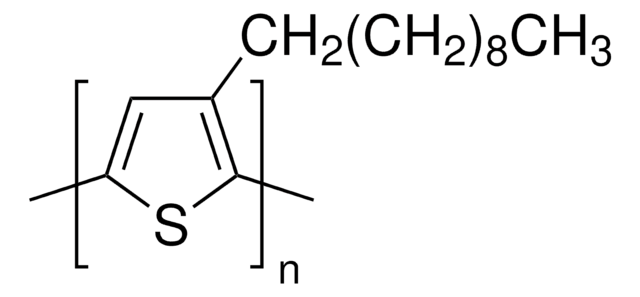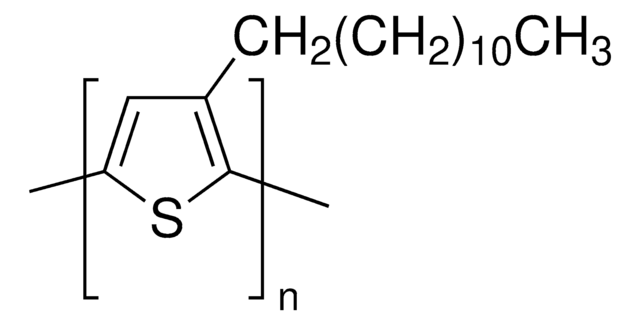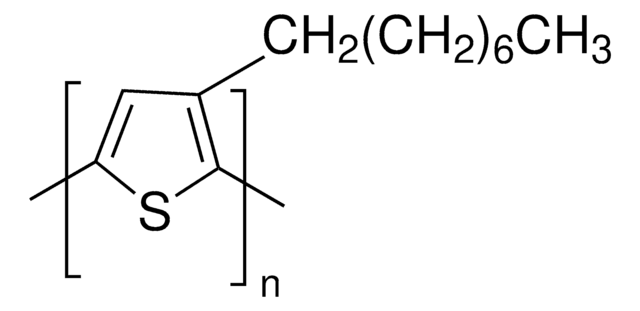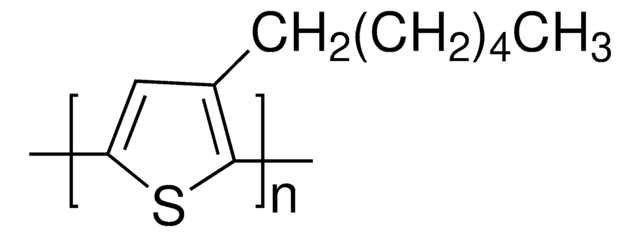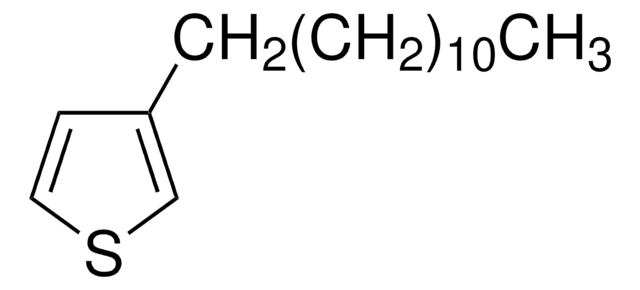510866
Poly(3-dodecylthiophene-2,5-diyl)
regiorandom
Synonym(s):
P3DDT
About This Item
Recommended Products
mol wt
average Mn 30,000
average Mw 70,000
solubility
chloroform, methylene chloride, toluene, and THF: soluble
fluorescence
λex 416 nm; λem 545 nm in chloroform
OPV Device Performance
ITO/PEDOT:PSS/P3DDT/PC61BM (1:3)/LiF/Al
Looking for similar products? Visit Product Comparison Guide
Related Categories
General description
Application
Rechargeable battery electrodes, electrochromic devices, chemical and optical sensors, light-emitting diodes, microelectrical amplifiers, field-effect transistors and non-linear optical materials.
Packaging
Legal Information
Rieke is a registered trademark of Rieke Metals, Inc.
Storage Class Code
11 - Combustible Solids
WGK
WGK 3
Flash Point(F)
Not applicable
Flash Point(C)
Not applicable
Personal Protective Equipment
Certificates of Analysis (COA)
Search for Certificates of Analysis (COA) by entering the products Lot/Batch Number. Lot and Batch Numbers can be found on a product’s label following the words ‘Lot’ or ‘Batch’.
Already Own This Product?
Find documentation for the products that you have recently purchased in the Document Library.
Articles
Intrinsically stretchable active layers for organic field-effect transistors (OFET) are discussed. Polymer structural modification & post-polymerization modifications are 2 methods to achieve this.
Our team of scientists has experience in all areas of research including Life Science, Material Science, Chemical Synthesis, Chromatography, Analytical and many others.
Contact Technical Service